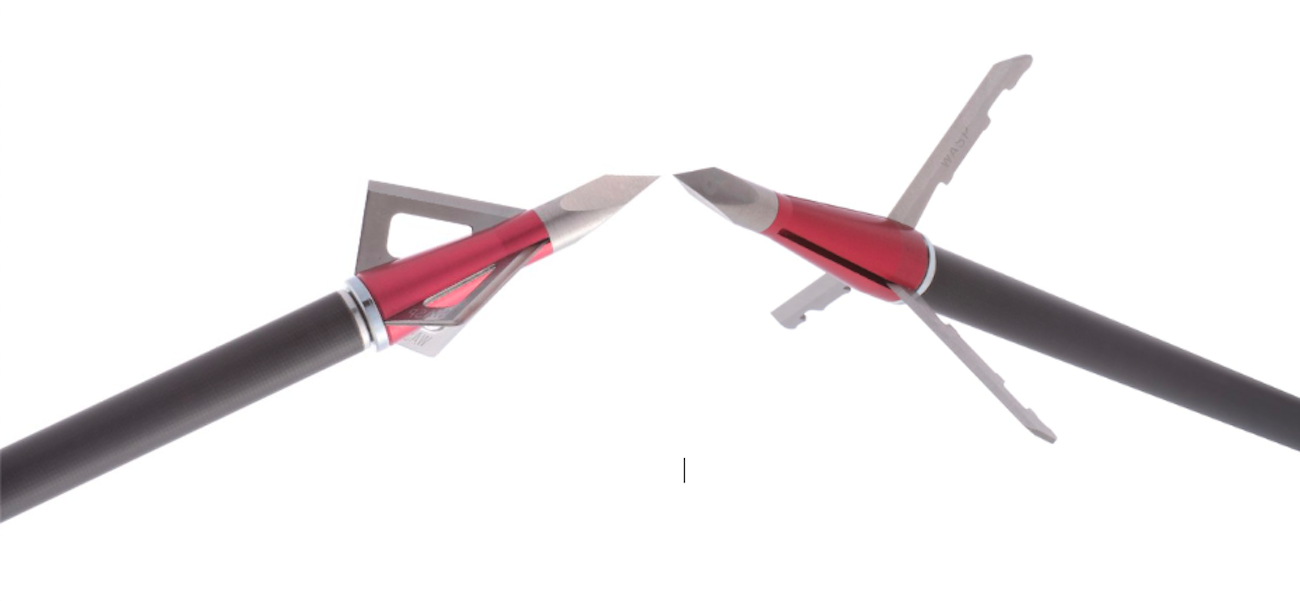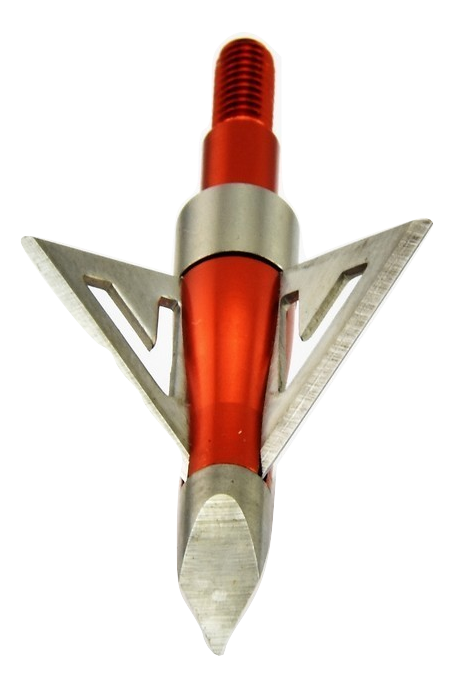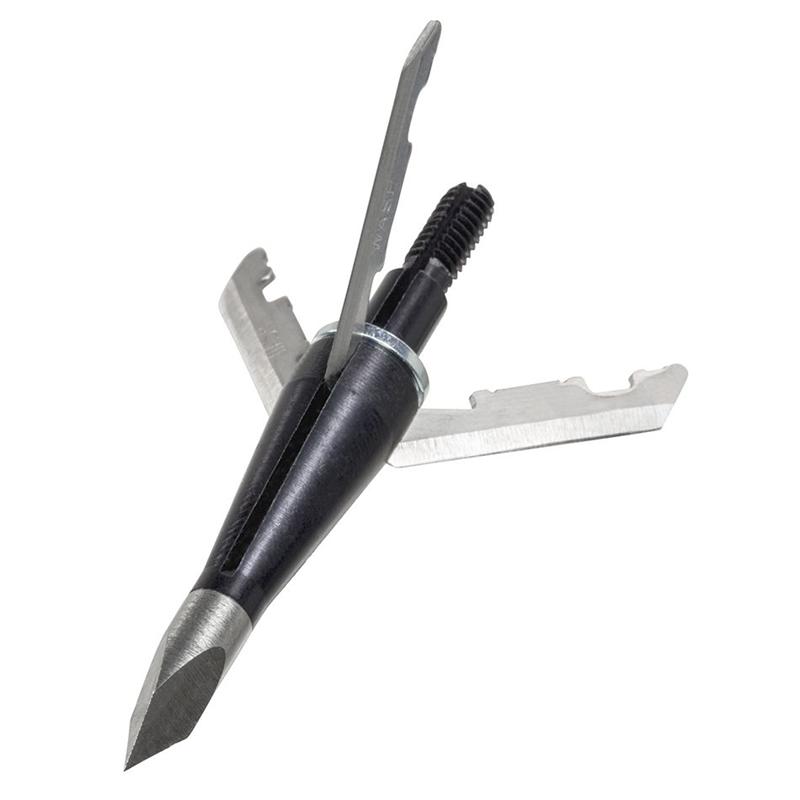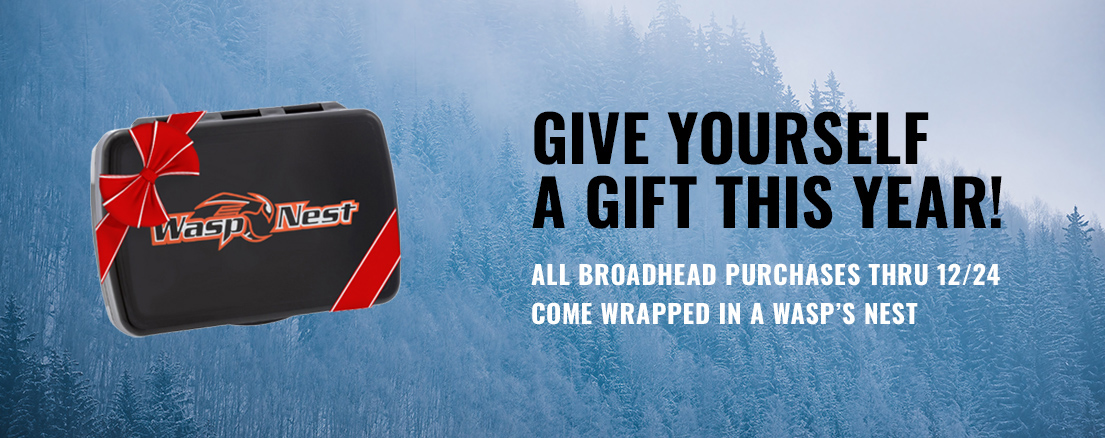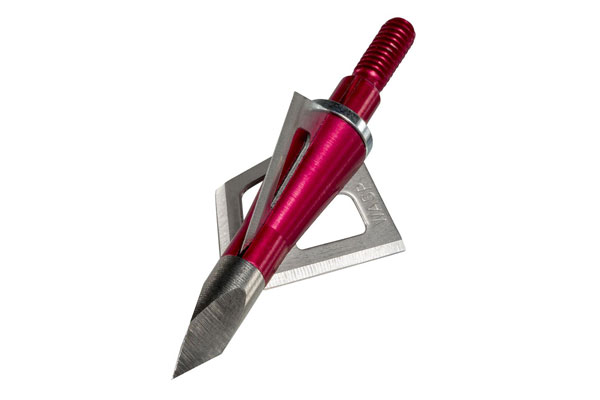Fixed or mechanical broadhead – Which is best for you?
Chances are, if you’re reading this article, you’re either new to the bowhunting world, or—for whatever reason—you’re looking to make a change. Regardless of where you’re at, you’ve come to the right place.
We’ll walk you through the pros and cons of both fixed and mechanical blade broadheads and provide you with some recommendations for each. Then, hopefully by the end of this article, you’ll be able to decide which one is right for your needs and hunting preferences.
Let’s begin.
Why there’s debate
The dispute over fixed blade vs. mechanical blade superiority is a long and storied one. If you ask your favorite uncle, he might tell you, “I’ll only ever trust a fixed blade.” If you bring it up to the guy behind the counter of the pro shop, he may claim, “Mechanicals are the pinnacle of broadhead design.”
So, who do you listen to?
Like any great debate, there are merits to both sides of the argument, with plenty of well-respected pros in each camp. The best thing you can do is take in all the facts, weigh the pros against the cons, and figure out what you absolutely NEED and what you’re willing to give up for it.
Fixed blade broadheads
Fixed blades are the tried and true design that hunters have trusted for as long as can be remembered. Wasp offers a wide selection of fixed-blade broadheads to choose from, all offering unsurpassed accuracy, strength, and penetration. If you want to shoot with fixed blades, you can’t do better than the Havalon HV.
Pros:
- Stronger and more reliable—Due to their sturdy, secure design, fixed blades are more likely to stay intact for more uses than their expandable brethren, especially if you miss your target a bit and strike bone.
- More penetrating power—Fixed blades pack a lot of punch! With a smaller wound path and nothing to slow it down, they have an easier time rocketing straight through and out.
- Easier to clean and sharpen—With less moving parts to work around, fixed blades are a breeze to clean and sharpen. Wasp makes everything that much simpler too with easily replaceable blades.
Cons:
- Smaller cut diameter—Due to the fact that they need to keep their flight profile as sleek as possible, fixed blades will max out at a certain diameter. While great for penetration, the downside is a less gruesome blood trail to follow.
- Slightly less accurate—While only a marginal difference on most well-designed models, the nature of the fixed blade design means they can catch a bit of wind mid-flight and fight the fletching for control.
- Exposed blades dull easier in transport—No matter how careful you are, the fact that your blades are constantly exposed means you’ll have to sharpen them more often. Of course, having a high-quality carrying case will definitely help avoid this issue altogether.
Mechanical blade broadheads
While certainly not new, expandable blade options haven’t been around for nearly as long but have grown immensely in popularity in that short time. Wasp has a wide array of mechanical broadheads that are all accurate, reliable, and downright deadly. If you’re looking for a recommendation, our Jak-Hammer is one of the highest-rated and best-selling mechanical broadheads of all time.
Pros:
- Field point accuracy—A tightly-tucked mechanical tip is about as close to field point accuracy as you’re likely to get. Just make sure you go with a high-quality option that won’t partially open mid-flight and ruin your shot.
- Better blood trails—In general, if you rip open a bigger hole, more blood will come pouring out. If you’re having a hard time treasure hunting, you may want to opt for a large diameter mechanical for a thicker path to follow.
- Easier to store—With the blades tucked away and protected, safety and storage are two less things to worry about, whether that’s in your quiver or a case back home.
Cons:
- Lower quality options run the risk of failure—Even if it only fails 1 time in 100, do you want to run the risk that it might happen when your prize buck-of-a-lifetime wanders into your kill zone?
- Requires more KE for proper penetration—The way mechanicals are designed, the blades open up on impact. Unfortunately, this process takes away some of the kinetic energy, meaning you may have to draw more weight to make up the difference in penetration.
- Not as durable—Due to the nature of their small, moving parts, mechanical heads are inherently less durable in the long run. That said, a high-quality mechanical will outlast a cheap fixed blade every time.
Which one is right for you?
As you may have expected, there isn’t going to be a cut and dry answer waiting here for you. There are even a few variables we haven’t considered yet (draw length, arrow weight, hunting style, etc.) that may factor into your final decision.
You may even want to use different heads for different animals. While a big mechanical is usually the better option to guarantee a hit in the tiny kill zone of a turkey, you may need the strength of a fixed blade to get through the tough hide of an elk or moose.
Ultimately, you’re going to want to determine what you need the most out of your broadhead, and if that’s worth the potential trade-offs. It’ll take some time (and plenty of trial and error), but eventually you will find the perfect tip for you, and you’ll never look back.
Whatever you choose, choose Wasp
Whichever style you end up choosing, you owe it to the animals you hunt to provide them with the quickest death possible, and the only way to guarantee that is to hit ‘em with a Wasp. Shop our mechanical and fixed-blade options today and you’ll be one step closer to finding your perfect broadhead.
View All Posts